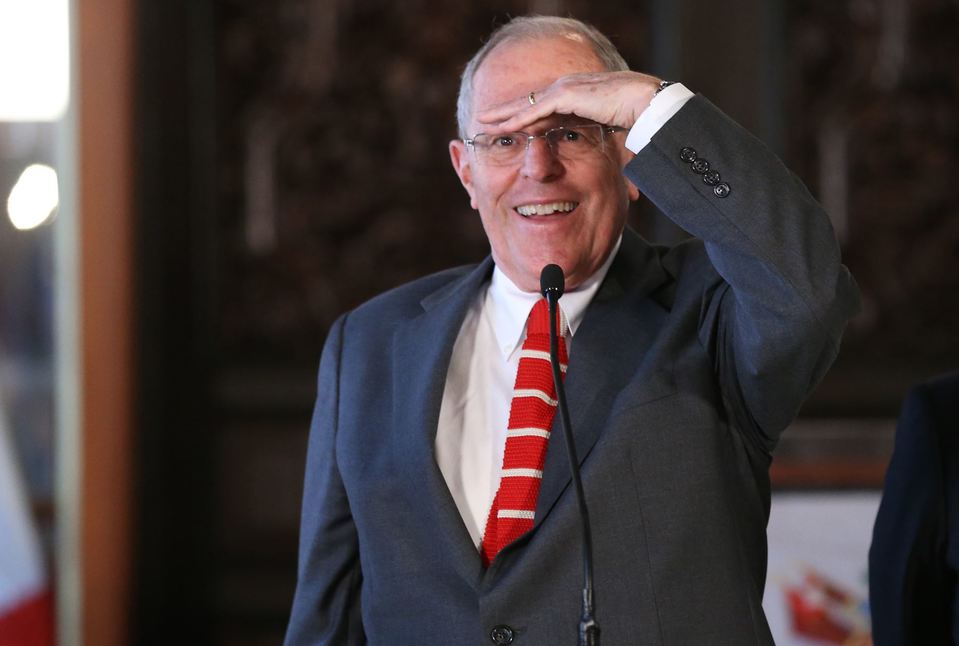
Peru’s next President? Pedro Pablo Kuczynski (PPK)
If Peru’s electoral authorities confirm Pedro Pablo Kuczynski as the winner of the country’s presidential election, as is increasingly likely, his rise to power will add to a dramatic reconfiguration of South American politics over the past two years, ending the decade-long continental reign of center-left commodity-boosted governments. What began with Maurício Macri’s close victory in Argentina and Maduro’s loss in parliamentary elections in Venezuela continued with the Bolivian voters’ stunning rejection of their president’s project to eliminate term limits and Dilma Rousseff’s impeachment, ending 13 years of PT rule in Brazil. Granted, PPK’s victory in Peru does not symbolize a change as abrupt as in Argentina, since Ollanta Humala markedly moved to the right from his initial left-of-center campaign platform (initially seen as Venezuela’s Hugo Chávez ally). Peru is also close to the United States and has embraced trade more whole-heartedly than Humala’s former mentors, first Chávez and later Lula. Kuczynski’s victory should not be interpreted to mean that Peruvians support his beliefs, but rather shows a rejection of his rival Keiko Fujimori — even left-wing progressives supported him in the second round, despite openly disagreeing with his policies.
Finally, the “ebbing of the pink tide”, proclaimed by The Economist in late 2015, is far from complete: In Uruguay, Chile and Ecuador, center-left governments remain in power (even though governments in Montevideo and Santiago are far more moderate than in Quito). In Chile’s case, President Michelle Bachelet, though currently embattled, returned to power in 2014 after four years under center-right President Sebastián Piñera, and Uruguay’s Tabaré Vázquez won the elections by a 12% margin in 2015.
And yet, what is notable is that none of the leading candidates embraced a political platform inspired by Chávez, Lula or even moderate left-wing leaders like Uruguay’s Vázquez.
A Kuczynski Presidency is also likely to have notable regional consequences. It would increase President Maduro’s isolation (this would occur anyhow as Keiko Fujimori has also criticized Maduro during the campaign). Even though PPK is unlikely to become a leading anti-chavismo crusader (his challenges are, above all, domestic, and an opposition-dominated Congress will markedly reduce his room for maneuver) he is likely to support Luis Almagro’s call to apply the Inter-American Democratic Charter to Venezuela.
Kuczynski’s election would represent the broad rise of post-commodity boom governments in the region that seeks to articulate strategies of how to deal with an adverse macroeconomic environment, caused by slowing Chinese demand and a normalization of US monetary policy. They will attempt to find a way to maintain social policies adopted in times of bonanza, while making their economies more business-friendly — a difficult task considering how much previous Peruvian presidents have struggled against vested interests that thrive on the country’s bureaucratic inefficiencies. In PPK’s case, that means an even greater emphasis on attracting international investments (which, particularly in the extractive sector, risks generating social tensions), promoting trade agreements, joining the OECD as soon as possible, and strengthening the Pacific Alliance and the Asia-Pacific Economic Cooperation (APEC), a forum for 21 Pacific Rim member economies that promotes free trade throughout the Asia-Pacific region.
Considering how recent Alberto Fujimori’s excesses still are, — including a so-called “autogolpe” in 1992, during which President Fujimori shut down Congress, and a grotesquely flawed election in 2000, shortly before Fujimori’s resignation — developments over the past days are good news for democracy in South America. As The Economist noted, Ms. Fujimori did not claim she had won, despite an extremely close outcome, nor did she question the accuracy of the count. As the result remained unclear, she prepared her supporters for a concession. “We’re proud to know that we came out with the backing of 50% of the population,” she said.
Read also:
How Latin America Should Address the Crisis in Venezuela (Americas Quarterly)
Brazil: Towards a New Foreign Policy?
photo credit: Andina/Altavoz








